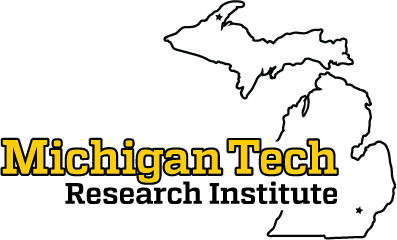
Workshop at Michigan Tech Research Institute
Here are the details of a workshop at MTRI on November 4, 2019:
When: Monday, November 4, 2019; 8:30 a.m. (Registration), 9 a.m. to 4:30 p.m. (Workshop)
Where: In the Kiva Conference Room at 3600 Green Ct., Ann Arbor, MI 48105 (Driving Directions)
Hosted by: Michigan Tech Research Institute (MTRI), Michigan Technological University; Michigan State University; and University of Michigan
Join remotely: Zoom Meeting
- Telephone: Dial (for higher quality, dial a number based on your current location):
- US: 646-876-9923 or 669-900-6833
- Meeting ID: 509 313 813
- International numbers available
Workshop Details
An interdisciplinary, NASA-funded project is underway to better understand historical and present-day drivers of change in Great Lakes coastal wetlands, and we would like your input. This project combines remote sensing, modeling, and field studies to investigate the effects of land use, agricultural nutrient runoff, climate change, large-watershed hydrology, and water levels on plant communities and ecosystem function in Great Lakes coastal wetlands. In addition, linked models and spatial datasets will be used to project our understanding into the future to anticipate plausible ecosystem changes, including invasive plants, nutrient dynamics, and carbon storage. For future scenarios of socioeconomic change and other drivers in the region, we will build on the results of the Great Lakes Futures Project, published in 2015. We anticipate producing maps and timelines of plausible future outcomes in coastal wetlands with a 50-year time horizon, together with links between plausible future drivers and outcomes, contributing to planning projects such as the Tipping Point Planner.
Please join the researchers on this project and a small group of regional experts and stakeholders for this full-day workshop. The goal is to directly involve experts and stakeholders in planning the future-outcomes aspect of the modeling work so that it produces results that are useful for management and planning related to coastal ecosystems.
Participants may arrive at 8:30. A continental breakfast will be provided. Lunch will be provided at the conference center. For those who are able to remain past 4:30, dinner will be provided at a local restaurant for continued discussion and community building.
Agenda
| 8:30–9 a.m. | Coffee and snacks |
| 9–9:15 a.m. | Introduction: Workshop goals – Laura Bourgeau-Chavez (MTRI) |
| 9:15–9:40 a.m. | Presentation: NASA IDS Project overview – Dave Hyndman (MSU) |
| 9:40–10 a.m. | Presentation: Great Lakes Futures Project – Kathryn Friedman (SUNY) |
| 10–10:20 a.m. | Presentation: Tipping Point Planner Decision Support Tool - Kara Salazar/Lydia Utley (presenting remotely) (Purdue) |
| 10:20–10:35 a.m. | Break |
| 10:35–11:15 a.m. | Panel discussion with stakeholders – Bill Currie moderating (UM) Panelists: Katherine Grantham (SEMCOG), Greg Norwood (MDNR), Doug Pearsall (TNC Michigan) |
| 11:15 a.m.–noon | Extended discussion of stakeholder needs |
| noon–1 p.m. | Lunch |
| 1–2 p.m. | Breakout session 1: Drivers of change Agriculture (Bill Currie – UM), Climate (Liza Jenkins – MTRI), Land Use (Sherry Martin – MSU) |
| 2–2:30 p.m. | Breakout reports and discussion |
| 2:30–2:45 p.m. | Break |
| 2:45–3:45 p.m. | Breakout session 2: Translate outcomes into decision support Facilitators: Bill Currie (UM), Liza Jenkins (MTRI), Sherry Martin (MSU) |
| 3:45–4:15 p.m. | Breakout reports and discussion |
| 4:15–4:30 p.m. | Workshop wrap-up – Liza Jenkins (MTRI) |
| 4:30 p.m. | Meeting adjourns |
Post-workshop happy hour/dinner: Carson's American Bistro, 2000 Commonwealth Blvd, Ann Arbor, MI 48105

